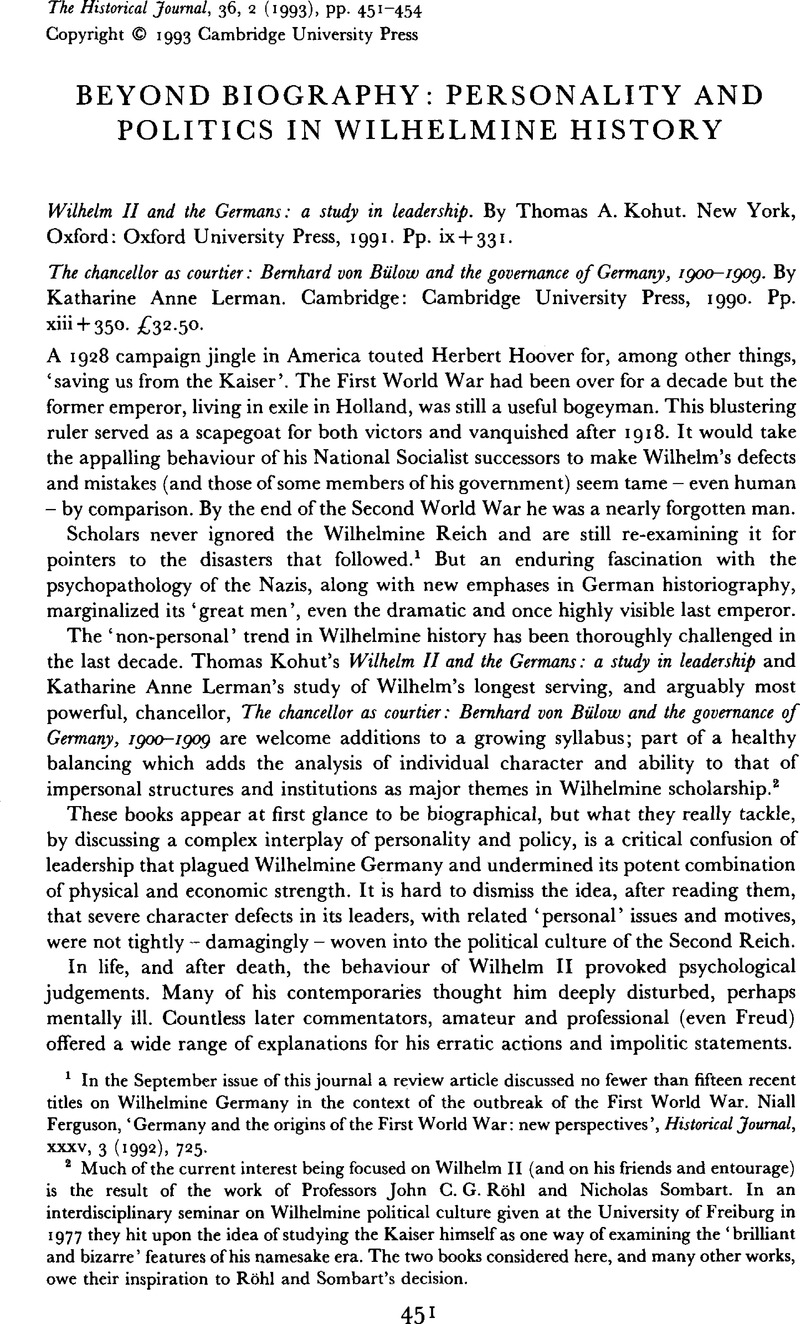No CrossRef data available.
Article contents
Beyond biography: personality and politics in Wilhelmine history
Published online by Cambridge University Press: 11 February 2009
Abstract

- Type
- Review Articles
- Information
- Copyright
- Copyright © Cambridge University Press 1993
References
1 In the September issue of this journal a review article discussed no fewer than fifteen recent titles on Wilhelmine Germany in the context of the outbreak of the First World War. Ferguson, Niall, ‘Germany and the origins of the First World War: new perspectives’, Historical Journal, XXXV, 3 (1992), 725CrossRefGoogle Scholar.
2 Much of the current interest being focused on Wilhelm II (and on his friends and entourage) is the result of the work of Professors John C. G. Röhl and Nicholas Sombart. In an interdisciplinary seminar on Wilhelmine political culture given at the University of Freiburg in 1977 they hit upon the idea of studying the Kaiser himself as one way of examining the ‘brilliant and bizarre’ features of his namesake era. The two books considered here, and many other works, owe their inspiration to Röhl and Sombart's decision.
3 Kohut, , Wilhelm II, 6Google Scholar.
4 His father, Hans Kohut, was one of the leading figures in the development of psychoanalysis. The older Kohut's signature contribution was a theory involving the abnormal development of a perception of the individual self, known and used today as the ‘psychology of the self’. The younger Kohut is himself a graduate of the Cincinnati Psychoanalytic Institute.
5 Ibid. p. 230.
6 Lerman, , The chancellor as courtier, p. 8Google Scholar. One of Lerman's initial aims was to resolve the ‘conflicting’ assessments of Bülow that she found when researching her study. As she catalogues these earlier impressions it seems that they were more negative than conflicting. A new German biography by Fesser, Gerd, Reichskanzler Bernhard Fürst von Bülow Eine Biographie (Berlin 1991)Google Scholar is the latest case in point. See the review by Ullrich, Volker, ‘Wie in einem Tollhaus’, Die Zeit, 19, 8 Mai 1992Google Scholar.
7 Lerman, pp. 248–50.
8 Lerman, p. 29.
9 Ibid. p. 258.




